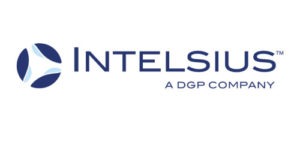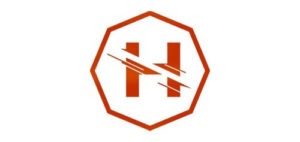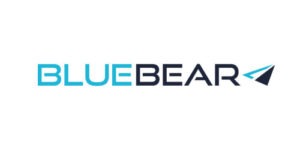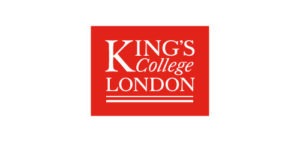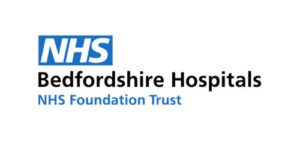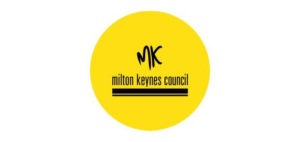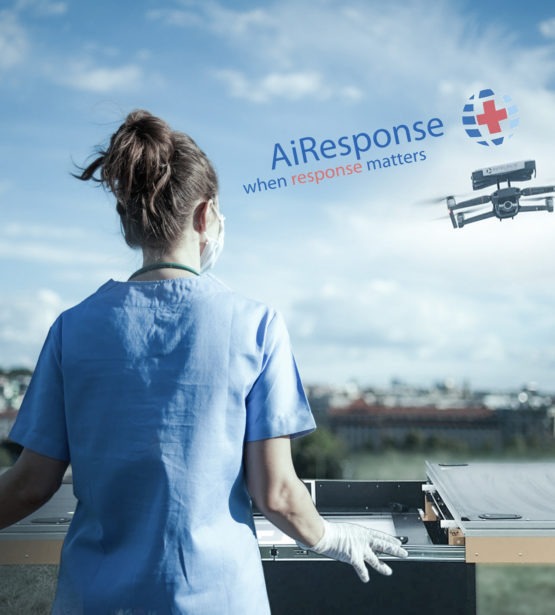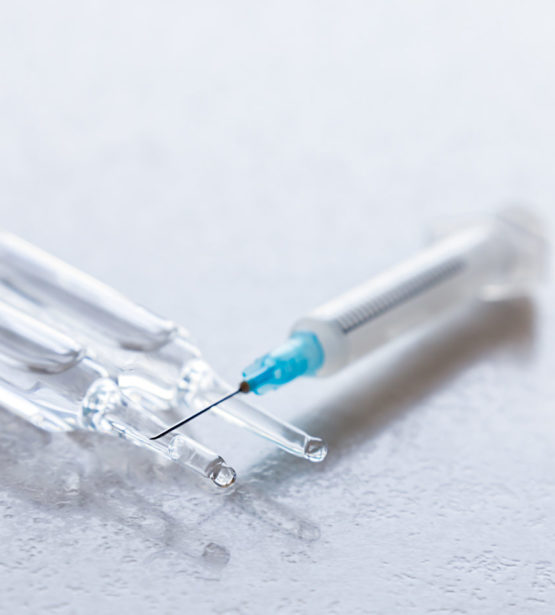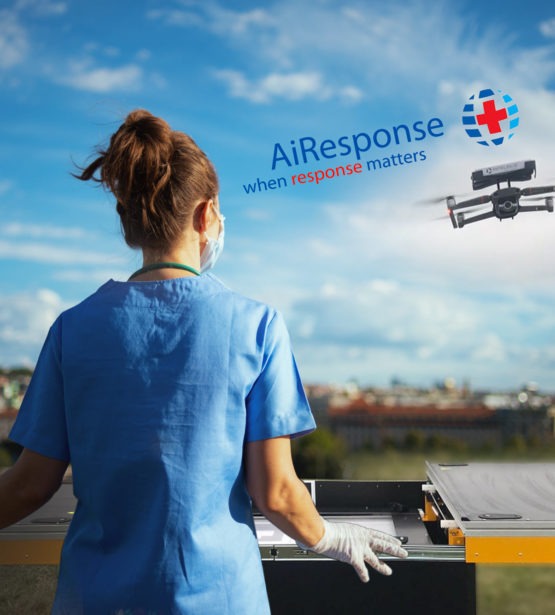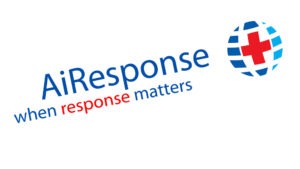
Intelsius are proud to lead AiResponse, a consortium that aims to showcase the advantages of using drone technology to support current U.K. healthcare processes. A user-led project with the express purpose of delivering a first-of-its-kind solution in U.K. healthcare settings, AiResponse will allow for faster, safer, and more economically viable transport solutions for medical supplies and patient samples.
Keep up to date with AiResponse’s progress by bookmarking this page and following Intelsius LinkedIn and Twitter social channels.
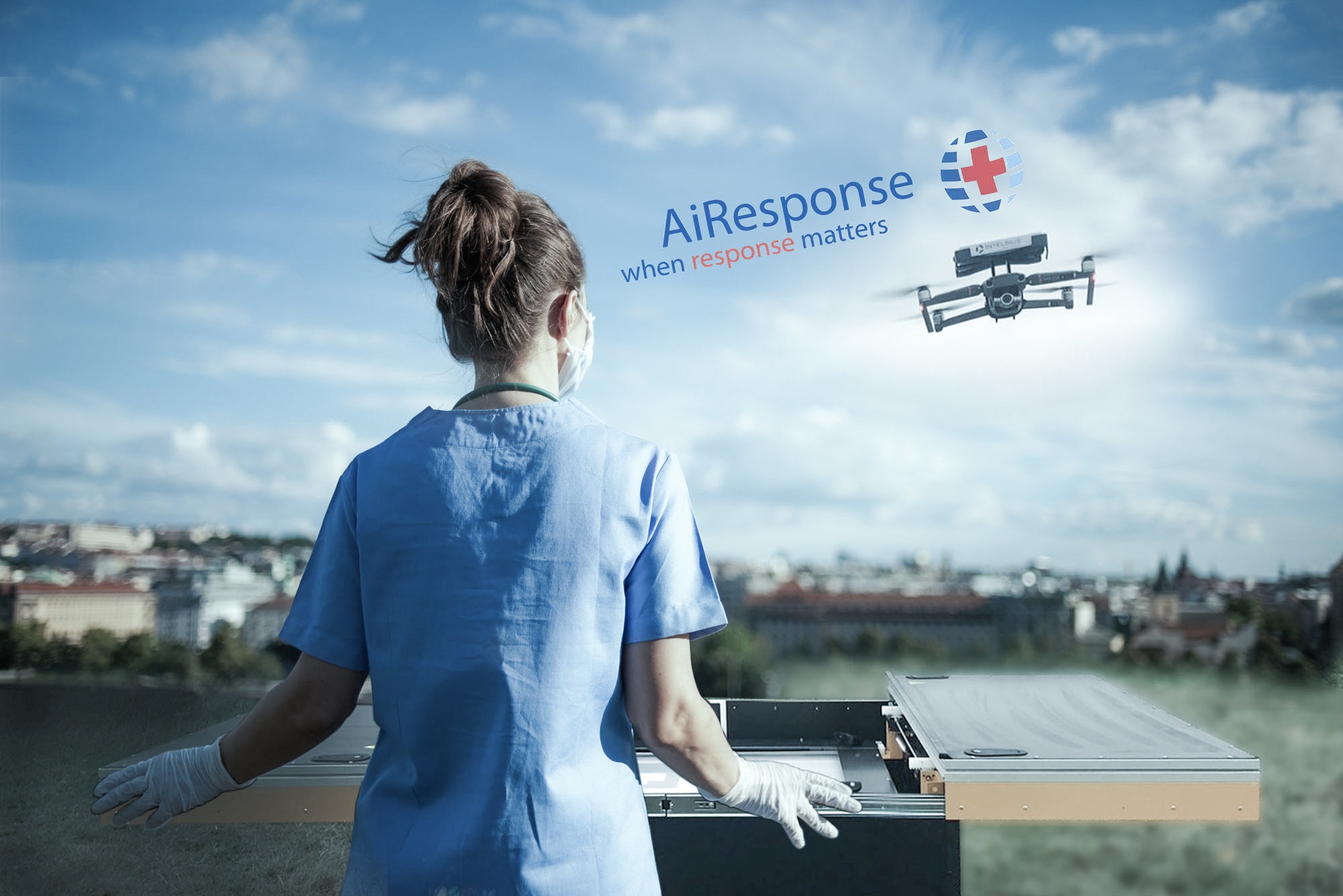
How drones could help and why they need to adapt
Using autonomous drones effectively in healthcare facilities has the potential to:
– Decrease delivery times of critical medical supplies
– Decrease reliance on single deliveries
– Improve socially distancing
– Improve staff efficiency
– Reduce road congestion
– Reduce costs
Given the potential benefits, you may ask why drones aren’t currently used at healthcare facilities across the U.K.?
One of the biggest obstacles preventing this change is the pending approval of drones for use in urban areas. Equally important is the lack of clear process and standard operating procedures (SOPs) around introducing drones to a healthcare setting. Without a clear process, the value of the benefits listed above could be eliminated due to increased short-term disruption.
At a time when there is great pressure on global healthcare systems, it is vital new technologies adapt to support real-world, existing healthcare processes and work to increase long term efficiencies while minimising short-term disruption following implementation.

Real end users
The AiResponse consortium will put the needs of the end-users at the core of the project, involving real healthcare professionals and environments at every stage of the research and testing.
A large part of the research will be to identify actual cases where drones would add real value for users.
AiResponse is privileged to have NHS support with Milton Keynes University Hospital, Bedford, and Luton Hospitals, heavily influencing its direction and outcomes. Their insight into the processes within the NHS will be pivotal for the creation of accurate and usable Processes and SOPs.
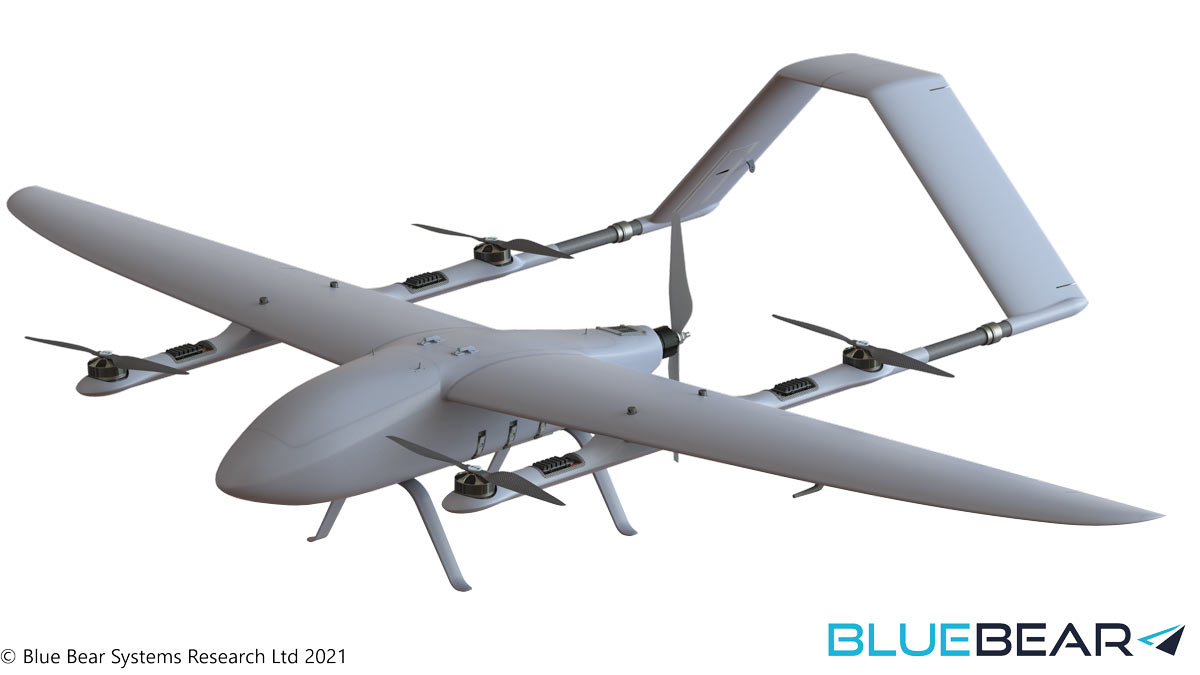
Real progress and results
The AiResponse project encompasses six key deliverables designed to ensure that real progress is made towards quickly implementing drone technology across the NHS and in other healthcare settings across the U.K. and beyond.
Deliverable 1: Create the first U.K. set of standard operating procedures for routine drone flights between medical centres, in co-design with end-users.
Deliverable 2: Demonstrate intra-site usage with a test flight showcasing automatic take-off and precision landing in a real-life environment.
Deliverable 3: Demonstrate inter-site usage with a test flight showcasing automatic take-off and precision landing between two real-life environments.
Deliverable 4: Conduct airspace management, navigation, and communication simulations of real-life centre-to-centre flight operations across city and urban landscapes.
Deliverable 5: Complete national medical and healthcare centre drone utilisation impact and benefits study.
Deliverable 6: Disseminate findings to U.K. medical community.
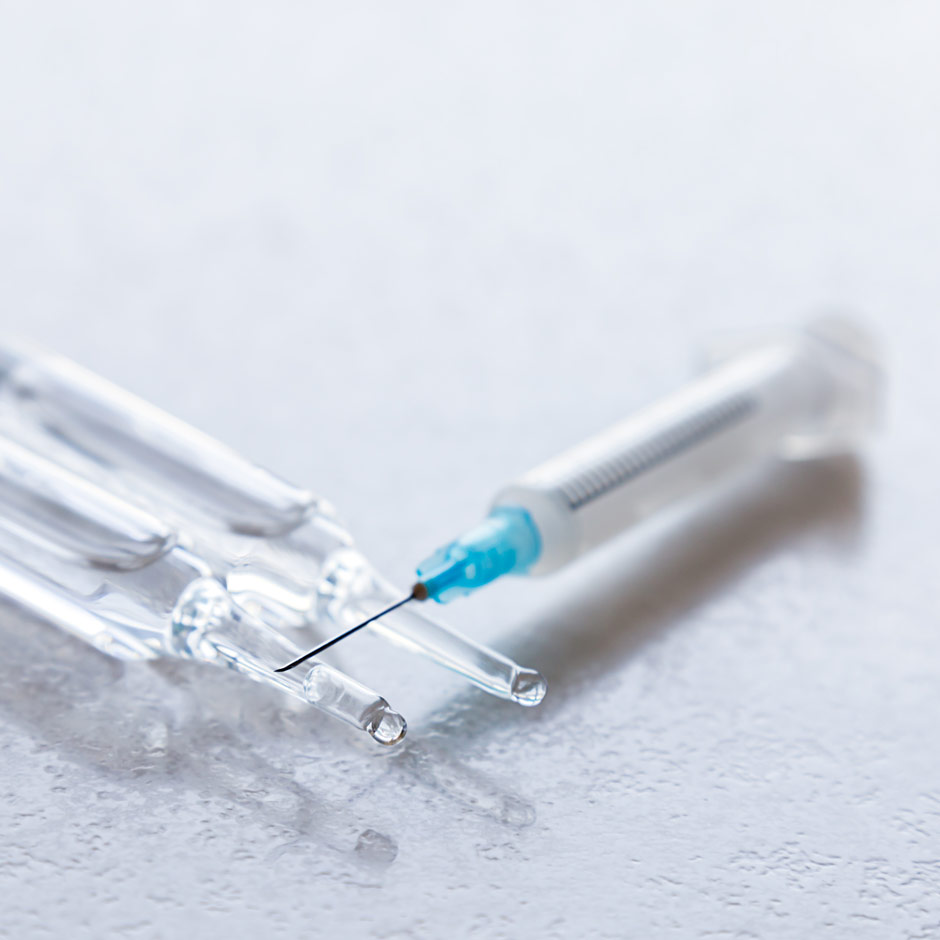
COVID-19 implications
The AiResponse project has gained momentum and funding on the back of the COVID-19 pandemic, as the use of drone technology could support social distancing, limits cross-contamination, and reduce medical and logistics staff exposure to unnecessary health risks.
Patients could also see significant benefits with faster delivery of critical medical supplies such as vaccines and test results.
AiResponse consortium members
Industry
Intelsius are proud to be leading the AiResponse project. We are a leading medical temperature-controlled packaging company. Our packaging is currently in heavy demand in the fight against COVID-19, and you can learn more about our COVID-19 packaging solutions here. In addition, our teams have worked on the vaccine drone delivery project backed by UNICEF in Vanuatu.
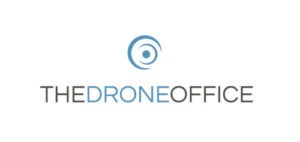 The Drone Office draws on 20 years’ professional background in the Technology and Defence & Aerospace industries within the advancement of autonomous systems. The Drone Office has direct experience in BVLOS flight testing within Europe. It has been working with medical end-users on medical drone delivery for over a year, helping to bridge the gap between the two ecosystems.
The Drone Office draws on 20 years’ professional background in the Technology and Defence & Aerospace industries within the advancement of autonomous systems. The Drone Office has direct experience in BVLOS flight testing within Europe. It has been working with medical end-users on medical drone delivery for over a year, helping to bridge the gap between the two ecosystems.
HEROTECH8 is a robotics start-up developing automated drone-in-a-box or drone docking station technology, enabling drones to be automatically deployed, flown, recovered and recharged without the need for an on-site pilot. HEROTECH8’s team has successfully deployed our drone-in a-box technology in the U.K., U.S. and across Europe.
Blue Bear is a well-established, wholly-owned SME and pioneer in unmanned aircraft, sensing systems development and autonomy. Blue Bears diverse technical portfolio includes managed service provision, systems integration and design, development and demonstration of unmanned systems technology, remote and automated data acquisition, A.I. data analytics and drone swarming.
Academia
 As a specialist postgraduate university, Cranfield’s world-class expertise, large-scale facilities, and unrivalled industry partnerships create global leaders in technology and management.
As a specialist postgraduate university, Cranfield’s world-class expertise, large-scale facilities, and unrivalled industry partnerships create global leaders in technology and management.
King’s Innovation Institutes work to encourage innovation and create impact. Whether by accelerating the translation of health research into marketable products, helping turn our research into actionable policy or facilitating collaborations between the university and the cultural sector.
Consortium Users
Bedfordshire Hospitals NHS Foundation Trust supports the consortium by giving access to real users and providing a real-life environment to conduct test flights. The insight into the NHS’s current processes is a vital element to the success of the project.
Support/Government
Milton Keynes Council offers government and logistical support throughout the project, providing further insight into how the NHS operates and offering administrative support.

